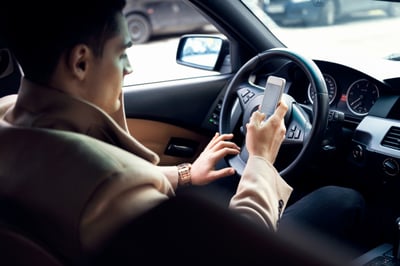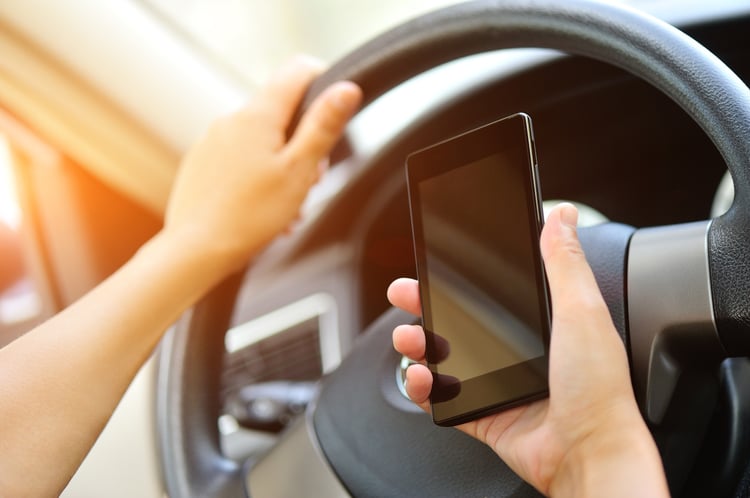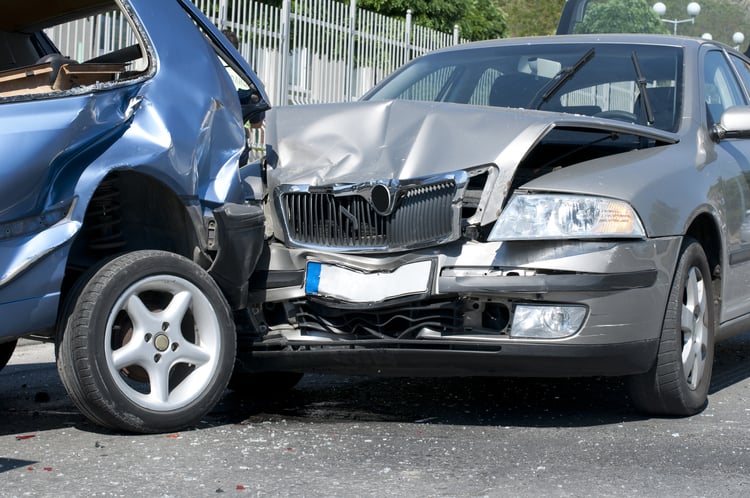 Do you remember an instance where you or a loved one got involved in an accident, without even realizing what happened? Maybe it was raining, or you got a text alert and the time it took you to look down and then back up again at the road meant a crash. It’s unfortunate, but it does happen (at higher occurrences than we would all like to believe).
Do you remember an instance where you or a loved one got involved in an accident, without even realizing what happened? Maybe it was raining, or you got a text alert and the time it took you to look down and then back up again at the road meant a crash. It’s unfortunate, but it does happen (at higher occurrences than we would all like to believe).
One thing that remains true: accidents happen.
While there’s never an ironclad way to avoid accidents, there are things you can do to prevent them from happening on your part. Of course, there will be serendipitous circumstances that are unforeseen: a blown tire, or someone blind-siding you. That said, you can implement best practices while driving to prevent your chance of a car accident happening.
Tips to Avoid Causing a Car Accident
Don’t Drive Tired
A lot of us have been there: late night driving after hanging out at a friend’s house, or taking a road trip somewhere with family. Either way, nighttime can garner unwanted things such as drunk drivers or potholes you may not be able to see. You can even work overnights and have an unregulated sleeping schedule.
Here are some tips:
- If you are feeling too tired, pull over and nap. Set an alarm with your phone or keep one in your trunk.
- Try to keep an energy drink/stimulant in your vehicle at all times so you can get a pick-up to get home or drive to the nearest hotel or family member’s house.
- Eat properly. Not doing so can affect your ability to function and react.
Your Phone Can Wait
If you can’t avoid looking at your phone while driving, put it on “Do not disturb” or vibrate mode so you aren’t distracted while driving. There is a law in place cited as the “Florida Ban on Texting While Driving Law,” which prohibits using handheld devices while operating a motor vehicle.

If you need to program a GPS, make sure it has voice software before you start driving so you can listen to the directions. According to a 2012 survey from the AAA Foundation for Traffic Safety, “two-thirds of drivers admitted to reading a text or email while driving.”
It’s not worth your life or someone else’s—and whatever notification you are looking at will still be there when you arrive at your destination.
Avoid Overconfidence To Prevent Car Accidents
While a healthy dose of confidence is good, you should never justify a risky maneuver on the road with “It’s okay, I’m a safe driver.” That simply does not cut it, especially concerning more dangerous intersections and rural roads that aren’t properly lighted. Take a moment and make sure you are evaluating your surroundings at all times to help prevent car accidents.
Although we may fall victim to autopilot on commonly driven roads, things change all the time: construction, pedestrians, and accidents happen all the time. Never take the road for granted, or other cars.
Stay Alert and Aware
Awareness of your surroundings is key to avoiding car accidents. Constantly scan your environment, checking your rear-view and side mirrors frequently for other vehicles, pedestrians, or unexpected obstacles. You should also check for slick and dangerous surfaces. Be conscious of blind spots and always signal your intentions to other drivers when turning or changing lanes.
Follow Traffic Rules
Following traffic rules is not only a legal obligation, but also a safety measure. Adhere to speed limits, respect traffic signs and signals, and always yield to pedestrians. Remember that rules are formulated with everyone's safety in mind.
Maintain Your Vehicle
Regular vehicle maintenance can prevent many unforeseen problems on the road. Always ensure your brakes, tires, lights, windscreen wipers, and other vital car components are in good working condition. Keeping your vehicle well-serviced and maintained will significantly reduce the risk of accidents.
Plan Your Route
Before you embark on a journey, planning your route can help avoid last-minute decisions that can lead to accidents. Use GPS navigation if available, and familiarize yourself with the directions before you start your trip. Consider factors like traffic, construction work, and weather conditions that might affect your route.
Don't Drive Under the Influence
Driving under the influence of drugs or alcohol is both illegal and extremely dangerous. It greatly impairs your ability to drive and react to situations on the road, increasing the likelihood of an accident. Always arrange for a designated driver, taxi, or rideshare service if you plan on consuming alcohol.
Practice Defensive Driving
Defensive driving involves employing measures that go beyond the basic rules of the road with the primary aim of preventing accidents before they occur. By being vigilant and prepared for unexpected events, you can avoid dangerous situations that may lead to accidents.
Being a defensive driver involves continuously monitoring your environment, anticipating possible hazards, and adjusting your driving accordingly.
For instance:
- Maintain a safe following distance. This gives you ample time to react in case the vehicle in front of you abruptly stops.
- Be cautious of other drivers' blind spots, especially when driving near large vehicles.
- Always be prepared for the actions of other drivers. Assume they might not see you or make an unexpected move.
- Avoid positions that put you directly alongside other vehicles for extended periods, as this can make you invisible to drivers changing lanes.
- Be particularly vigilant at intersections, a common place for collisions.
- Be wary of oncoming vehicles that may cross your path at intersections or turn into your lane on multi-lane roads.
- Let drivers pass you in the left lane, and don't use the left lane if you are driving slowly.
Most Common Causes of Motor Vehicle Accidents in Florida

An auto accident is usually caused by a combination of factors, including mechanical failure, road conditions, and driver behavior. In Florida, however, some common causes stand out:
- Distracted Driving: This is one of the top causes of car accidents in Florida. Whether it’s texting while driving or eating behind the wheel, distracted driving can significantly increase the likelihood of an accident.
- Speeding: Exceeding the speed limit not only puts you at risk but also increases your chances of causing a car accident. It’s important to always follow posted speed limits and adjust accordingly for weather conditions.
- Driving Under the Influence (DUI): Despite strict laws, drunk driving is still a major cause of car accidents in Florida. Always make safe and responsible decisions when it comes to alcohol consumption.
- Road Rage: Aggressive driving can quickly escalate into a dangerous road rage incident. It’s important to stay calm and avoid engaging with aggressive drivers on the road.
The Takeaway
These are just a few ways you can avoid accidents, or increase your chances of avoiding a possible auto accident. As long as you are aware of your surroundings and implement best practices into everyday driving, you will most likely not be at fault in the event of a car accident and can pretty much prevent them from happening.
Still have questions? Check out some of our other content, including how to protect yourself with insurance coverage and questions to ask yourself about an accident.

